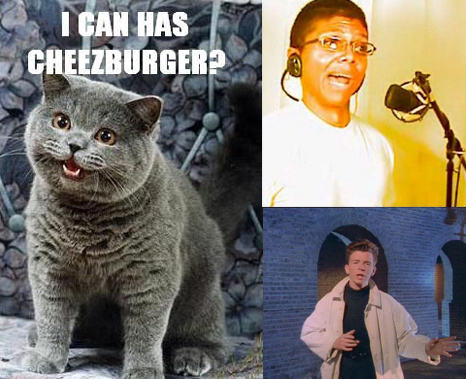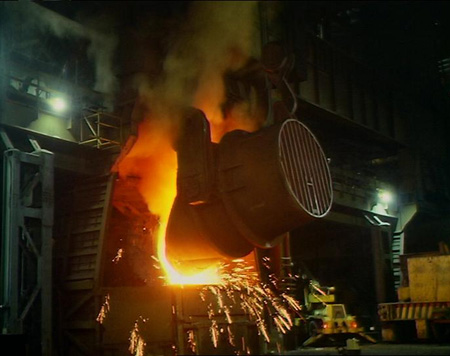Beware the creative, cacophonous chaos of 4chan
You may not know it, but there’s a site out there whose content you view almost as much as Facebook, Twitter or Reddit. Unbeknownst to all but the more savvy Internet users, it churns out volumes and volumes of images, trends, expressions – memes of a hundred different formats. What is it? Today on Professionally Incoherent, I’m bringing you an article on the unmoderated wilderness that is 4chan. Read on for more on this sometimes hilarious, frequently offensive and potentially frightening forum!
4chan was founded in 2003 by a 15-year-old student who posted under the screen name “moot”. He intended it to be an English translation of a popular imageboard website from Japan, but it soon morphed into something far beyond moot’s expectations. 4chan became the place for anyone to anonymously post whatever they wanted on the site’s numerous “boards” or themed forums. No account or registration is needed; users can pick any nickname (even if it has already been used) to post under, and if the “Name” field on the post form is left blank, the post is attributed to “Anonymous”.
It’s the fact that 4chan is not moderated (read: censored by moot or his team) that has helped build its popularity. Many of the posts on 4chan are flagrantly offensive, graphic and nonsensical. There are a total of 49 boards on the site, but the most trafficked one by far (moot has estimated it at a third of the hundreds of thousands of daily posts) is the /b/, or “Random” board (Technically, Rules #1 and #2 of the Internet forbid me from mentioning /b/, but I’ll risk it). It is on /b/ where a majority of Internet memes created by the 4chan community are born. You’re already familiar with many of the memes that originated on 4chan: LOLcats, Rickrolling, Chocolate Rain - they all had their start on the site. New memes are being created as you're reading this; hundreds of images are being posted and subsequently manipulated and re-uploaded.
This might seem harmless, but 4chan is far less structured than it may sound. Picture thousands of people in one room, alternatively scribbling on surfaces, screaming at each other, throwing photos around, or any number of other activities. All this happens at once on 4chan, especially on /b/. Sometimes informal “games” or in-jokes will sputter to life and then disappear forever. One popular game is for a user to post multiple times (sometimes into the hundreds) just to achieve a significant post number (which indicates the numerical sequence of the post). These significant post numbers (like #123456789 or #666666666) are referred to as “gets” (in the sense of “I got it!”), and are met by either celebration by the 4chan community or indifference - the site is so random that there is no way to predict what will happen next.
4chan can be a frightening place for the uninitiated. Newcomers can expect to find everything from racism, coarse language, religious debate, and (are you really surprised?) pornography. Users are relatively protected by their anonymity, and some use 4chan as a place to vent their frustrations or cure their boredom, because it is difficult (but not impossible) to trace the posts back to the author. There have been situations where incidents of violence bragged about online have been linked to the real-world user by the 4chan community, leading to criminal charges, like this case of animal abuse.
moot’s own identity (Ahh! No capitalization! The English student inside me just died a little) remained hidden for 5 years, until 2008 when The Wall Street Journal revealed his real name to be Christopher Poole, of New York City. After Poole was unveiled, details about him began to surface. Poole admitted that he had at times been $20,000 in debt because the site consumed large amounts of expensive bandwidth and could not reliably generate revenue. When TIME magazine nominated Poole to their annual “TIME 100” list of influential people in 2009, 4chan immediately intervened to overwhelm the online voting and ensure Poole would win the title.
What has made 4chan particularly significant in recent years has been a group that formed on the /b/ board, known only as “Anonymous”. Taking their title from the majority of post names on 4chan, Anonymous became relevant in the real world when they began gathering for public protests, and organizing the place and time on /b/. Usually the protests would be in opposition to something discussed on /b/, like the Church of Scientology. The people were complete strangers to each other, but nevertheless gathered with signs (some reading, "We Are The Internet") to have their voices heard outside the confines of 4chan. Later, Anonymous became a more militant group, organizing cyber attacks against online targets like Visa (following Visa’s removal of support for Wikileaks) and most recently, the PlayStation Network. (note to any members of Anonymous reading this: I mean no harm. Don’t destroy the site, please!)
Personally, I think 4chan is one of the most fascinating places on the Internet. While they possess the power to unite around online targets and bring them down through hacking and denial-of-service attacks, they are also responsible for some of the most entertaining Internet content of the past few years. They are like the blast furnace of the Internet: raw material goes in, and a product (usually hilarious nonsense) comes out. While I don’t think I would survive in their environment (my literary style would be utterly obliterated), I’m always curious to see what they’ll come up with next.
What are your experiences with 4chan? Have you ever contributed to /b/? What do you think about the attacks by Anonymous? Whatever your thoughts, share them in the comments below, and hit that little “like” button!
Check out this talk moot gave at TED2010, where he discusses the value of Internet anonymity
- Read more on 4chan on Wikipedia -
- Check out the site itself, but reader beware! -







